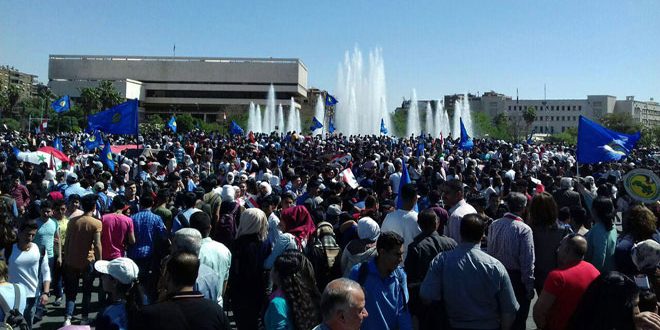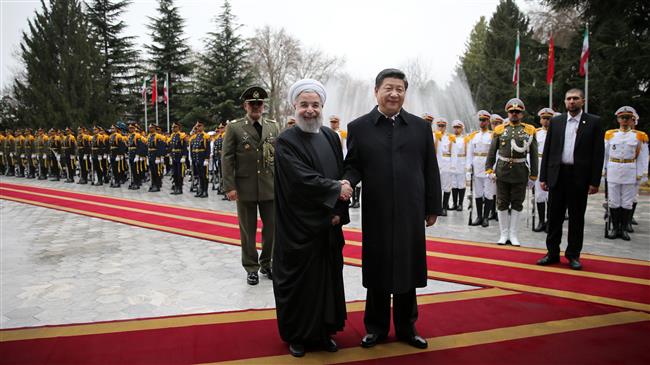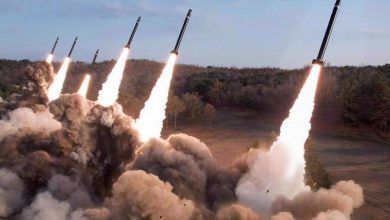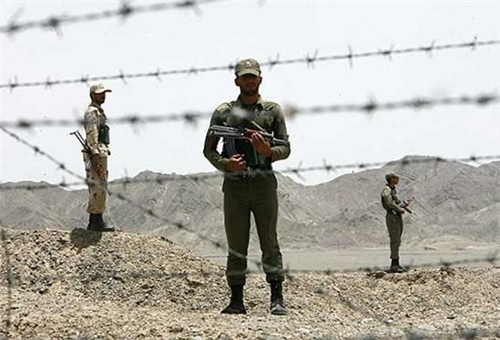Profile: Charting Nasrallah’s Ascent to Pillar of the Axis of Resistance
Sayyed Hassan Nasrallah, the Secretary-General of Hezbollah and a key figure in the Axis of Resistance, was killed in a significant Israeli strike targeting the southern suburbs of Beirut on Friday.
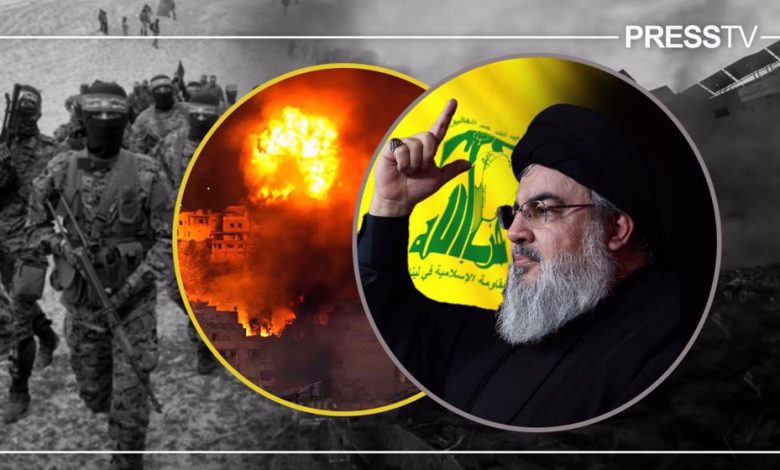
In a devastating escalation of violence, Israeli airstrikes have razed multiple residential buildings in the Haret Hreik neighborhood of southern Beirut, a Hezbollah stronghold. Emerging reports suggest that hundreds of civilians, including children, may have perished in the bombardment.
In an official statement released on Saturday, Hezbollah announced the death of Nasrallah, lauding him as “an exemplary, brave, astute, and perceptive leader.” The organization honored him by placing him among his “great and eternal martyr comrades.”
In a statement, Hezbollah’s leadership affirmed a solemn commitment to continue its resistance against adversaries, pledging unwavering support for Gaza and Palestine while defending Lebanon and its resilient citizens, in honor of their most revered martyr.
The Israeli government has escalated its military operations against Lebanon over the past week, resulting in the deaths of over 720 individuals, including numerous women and children, since Monday.
Tensions have surged following nearly a year of Hezbollah activities in support of the Palestinian cause and resistance, as the death toll in Gaza exceeds 41,500.
Hezbollah has conducted almost daily operations in solidarity with Palestinians in Gaza since October 8, 2023, following Israel’s intense military campaign initiated on October 7 against the blockaded region.
Nasrallah’s steadfast dedication to resisting Israeli actions and his consistent advocacy for the Palestinian cause have established him as a revered figure within the Axis of Resistance.
**Aspiring Youth Aims High in Pursuit of Dreams**
Sayyad Hassan Nasrallah, born on August 31, 1960, in the eastern suburbs of Beirut within the Matn district, spent his early years in a disadvantaged Shia family. His childhood saw upheaval as he and his family were relocated to southern Lebanon.
Despite facing numerous challenges, Nasrallah remained a highly motivated and devout student of Islam. In 1975, at the age of 16, he pursued theological studies at Ayatollah Mohammad Baqir al-Sadr’s Seminary in Najaf, Iraq.
Al-Sadr, a renowned Islamic scholar, has reportedly acknowledged Nasrallah’s attributes, remarking, “I sense in you the essence of leadership; you are among the supporters of the Mahdi, the final of Shia Islam’s Twelve Imams.”
In 1979, a youthful Hassan Nasrallah aligned himself with the Amal Movement, a Shia political faction in Lebanon. Nevertheless, due to ideological disparities, he departed from the organization in 1982 and became a member of the emerging Hezbollah movement.
Nasrallah ascended rapidly within the ranks of the resistance movement, establishing himself as a pivotal military leader during the Israeli occupation of Lebanon in the 1980s.
In 1985, Nasrallah assumed the position of deputy regional leader within Hezbollah.
Subsequently, he ascended to the role of Chief Executive Officer, tasked with implementing the directives issued by the organization’s Shura Council, the principal governing body entrusted with strategic decision-making and policy formulation for the group.
As chief executive, he held the crucial responsibility of overseeing the effective implementation of the group’s decisions as well as managing the daily operations of the movement.
He was instrumental in the resistance against the Israeli occupation regime, with his strategic expertise garnering respect and admiration from both his peers and commanding officers.
Nasrallah’s ascension to his current leadership role highlights his adept leadership and unwavering dedication to the organization’s objectives and principles.
He has been widely regarded as a reliable and adept leader, proficient in steering through intricate political and military landscapes.
His appointment as the chief executive of Hezbollah marked a pivotal moment in his career, paving the way for his ascension to the role of Secretary-General.
Hezbollah Appoints New Leader Following Abbas Musawi’s Death
In 1992, Abbas al-Musawi, the prominent Lebanese Shia cleric and co-founder of Hezbollah, who also held the position of the group’s Secretary-General, was assassinated by Israeli forces.
Nasrallah assumed the leadership of Hezbollah on February 16, 1992, and remained in that role until his reported martyrdom on Friday.
Under his visionary and effective stewardship, Hezbollah evolved into a formidable political and military entity in the region, garnering substantial support from Lebanon’s Muslim and non-Muslim communities.
Following his appointment as the leader of Hezbollah, he swiftly initiated a comprehensive overhaul of the group’s strategic and tactical approaches to adapt to evolving political and military landscapes.
Under the leadership of Hassan Nasrallah, Hezbollah executed a series of strategic and high-impact operations against Israeli forces in southern Lebanon. These initiatives were specifically aimed at making the Israeli occupation of the southern regions unsustainable. Ultimately, these efforts proved successful in accomplishing their objectives.
In the year 2000, following nearly two decades of conflict, Israeli forces executed a significant withdrawal from southern Lebanon, symbolizing a substantial triumph for Hezbollah and the larger resistance movement throughout the region.
Nasrallah was instrumental in achieving this victory, demonstrating both his command over Hezbollah’s military strategy and his adept political maneuvering in negotiations with the Lebanese government and regional stakeholders.
In 2004, Hassan Nasrallah was instrumental in brokering a significant prisoner exchange between Hezbollah and Israel, leading to the liberation of hundreds of Lebanese and Palestinian detainees previously held by Israeli authorities.
The 2004 prisoner exchange solidified his standing as a highly adept diplomat.
For Hezbollah leader Hassan Nasrallah, the exchange held profound personal significance, culminating in the repatriation of his son’s remains, a son who had fallen in combat against Israeli forces in 1997.
The repatriation of his son’s remains stands as a profound testament to Nasrallah’s unwavering commitment to the cause of resistance, highlighting his readiness to endure personal sacrifices on behalf of his people.
Nasrallah’s leadership during the 33-day conflict with Lebanon in 2006 significantly cemented his status as the “leader of the resistance,” resonating both within Lebanon and throughout the wider Arab and Islamic regions.
Throughout the conflict, Hezbollah successfully resisted a substantial Israeli military offensive and ultimately emerged victorious, significantly bolstering its reputation.
The group’s resilience against Israeli air strikes and ground offensives, coupled with its continued rocket and missile launches into Israeli-occupied territories, highlighted its significant military capabilities and unwavering dedication to resisting Zionist occupation.
A Figure Known for His Robust Alliances
Nasrallah played a pivotal role in forging strategic alliances with key regional players, notably Iran and Syria, while orchestrating resistance initiatives against the government in Tel Aviv.
Hezbollah Secretary-General Hassan Nasrallah emerged as a staunch advocate for Syria and its President Bashar al-Assad during the Syrian civil war that erupted in 2011. Nasrallah vociferously opposed Western-supported efforts to destabilize the Assad government through the use of mercenaries and terrorist factions.
Hezbollah militants have been actively engaged in the Arab nation, collaborating with Syrian government troops to combat US-supported extremist factions, in an effort to curb the proliferation of radical groups in the region.
Nasrallah has garnered a reputation for his articulate and charismatic delivery in public speaking engagements.
His addresses have galvanized millions throughout the region, with his advocacy for resistance and self-determination striking a chord with oppressed populations globally, including Palestinians.
Despite facing multiple assassination attempts and continued efforts to destabilize his leadership, Nasrallah has remained resolute in his dedication to the causes of justice and liberation.
His leadership has been pivotal in upholding Lebanon’s sovereignty and dignity, while also inspiring a new generation of resistance fighters.
In October of last year, at the onset of Israel’s military campaign in Gaza, he announced the initiation of a “front in southern Lebanon” to bolster Palestinian resistance.
In a series of resolute speeches, he pledged that this front would remain steadfast in its efforts until the devastating conflict in Gaza was brought to an end.
Nasrallah is widely regarded as a pivotal figure within the Axis of Resistance, with his enduring legacy poised to inspire and direct future generations in their pursuit of justice and liberation.
